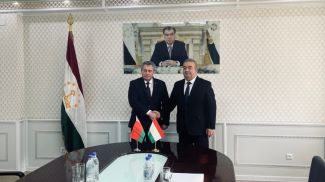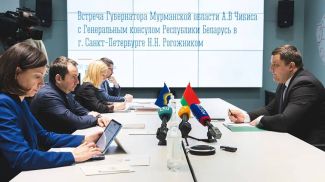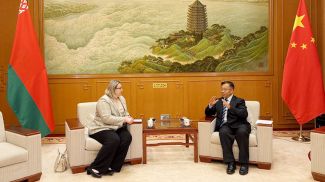MOSCOW, 2 February (BelTA) – To reduce tensions in Europe NATO and the CSTO should seek dialogue rather than flex their muscles, Secretary General of the Collective Security Treaty Organization Stanislav Zas said at an online press briefing on the military and political situation in and around the CSTO's area of responsibility, the CSTO's activities in 2020 and the goals for 2021, BelTA has learned.
Stanislav Zas noted that the CSTO takes into account the existing risks in the Eastern European region related to the militarization of the region and NATO's actions to build up the military infrastructure near the borders of Belarus and Russia. "Large groups of troops are deployed and this is a matter of concern for us," he said.
"We are considering holding exercises in this region in order to increase the readiness of the CSTO collective forces. In this case it is the Belarusian-Russian regional military force. This year we are planning the Zapad 2021 exercise, which will be held in Belarus. Other military activities will be carried out too," the CSTO secretary general said.
"At the same time, I would like to note that taking into account all the risks we still think that establishing contacts and reducing tensions in the region, reaching some agreements, increasing transparency of actions of the two sides is more effective,” Stanislav Zas said. "I think it's a more promising and important way than flexing muscles and showing each other preparedness for some action."
According to the secretary general, so far the CSTO has received no response to its cooperation proposals from NATO. “We do not see any readiness from NATO. We are prepared for such cooperation and consider it very important. You cannot ensure the security of the entire continent or the area of responsibility we are located in without engaging in dialogue. We have threats of a global nature that are common to all of us. They can form the basis of cooperation, which in the future, I hope, will develop between the CSTO and NATO. These threats include terrorism and extremism, and a number of others,” he said.













